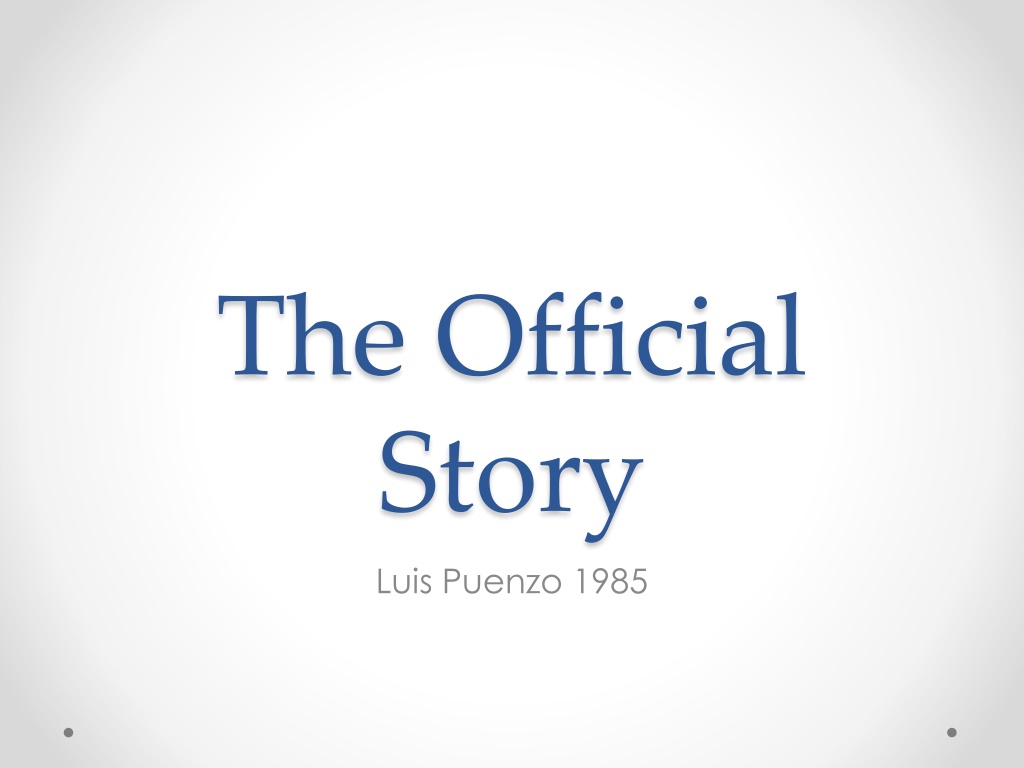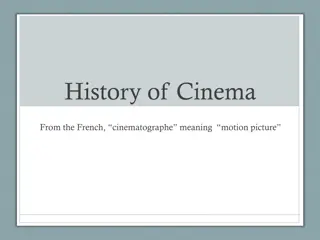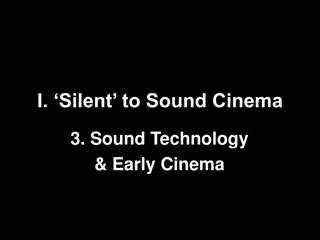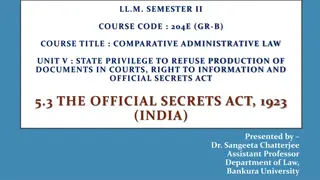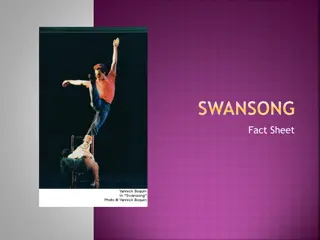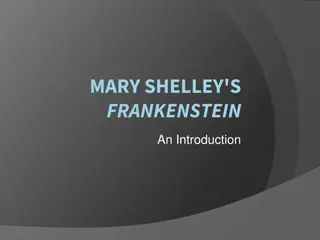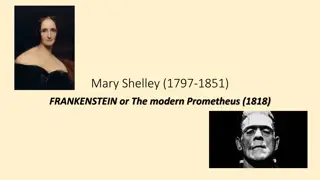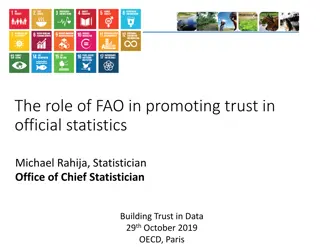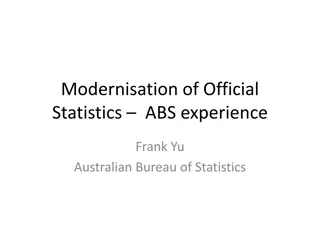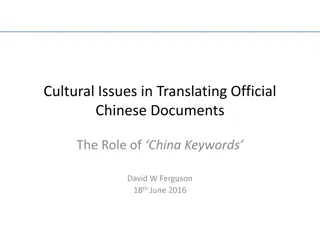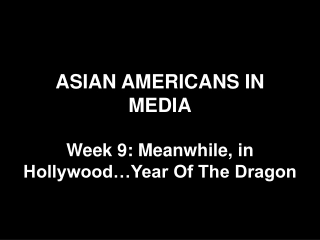The Official Story (1985): A Masterpiece of Argentine Cinema
Luis Puenzo's film "The Official Story" is a significant piece of Argentine cinema that delves into the country's turbulent history during the Dirty War. The movie, set in the aftermath of a dictatorship, offers a poignant portrayal of Argentine society through the character of Alicia, a middle-class woman seeking the truth about a adopted daughter. With its impactful imagery and social commentary, this award-winning film stands out for its artistic and critical merits, capturing universal themes of justice and resilience.
Download Presentation

Please find below an Image/Link to download the presentation.
The content on the website is provided AS IS for your information and personal use only. It may not be sold, licensed, or shared on other websites without obtaining consent from the author. Download presentation by click this link. If you encounter any issues during the download, it is possible that the publisher has removed the file from their server.
E N D
Presentation Transcript
The Official Story Luis Puenzo 1985
Luis Puenzo Born in Buenos Aires in 1946. Films were common forms of childhood entertainment. Received his first camera as a birthday present. After his expulsion from Military School Puenzo began working for an advertising firm creating film/TV spots under the guidance of Alejandro Castro. La historia oficial is his first cinematic success. Prior to this he had directed a children s film that failed at the box office. Would go on to direct several features with moderate success including Gringo viejo (1988), La peste (1991) and La puta y la ballena (2003). Puenzo s cinematic style relies on social commentary through character study.
The Film The screenplay was written during Galtieri s presidency (1982-3) with the intention of being filmed underground, Following the election of Alfonsin, Puenzo filmed in Buenos Aires openly. (1984-5) The film is part of a flood of art dealing with Argentina s dictatorship which emerged in its immediate aftermath. Considered a masterpiece for its impactful economy of images, its totalizing portrait of Argentine society during the Dirty War, and its touching on universal themes. Is valued both as an artistic piece and as social commentary.
Won the academy award for Best foreign film at the 1985 Oscars Norma Aleandro was also honored for her role in the film at the Cannes film festival. Her performance captures the subtlety of character without sacrificing the film s critical message. The film also is notable in that it distances itself from the victim-perpetrator dyad of testimonial art. Alicia s perspective stands in for the Argentine middle-class as a whole.
